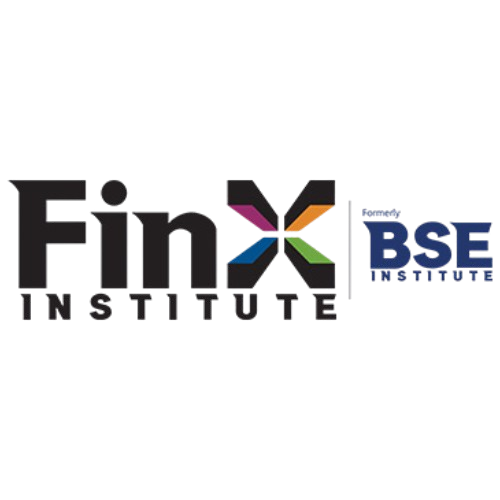Finance is the backbone of the global economy, influencing businesses, investments, and
economic policies worldwide. Pursuing a BSc in Finance is an excellent choice for students
who want to build a strong foundation in financial management, investment strategies, and
global financial markets. One of the top institutions offering this program is BSE Institute
Ltd., in collaboration with Dr. Homi Bhabha State University.
This blog covers all essential aspects of the BSc Finance syllabus, including its details,
eligibility criteria, subjects covered, career opportunities, and benefits for students in 2025.
If you’re wondering what is BSc Finance, its career prospects, or expected BSc Finance
salary, read on to get all the answers.
What is BSc Finance?
BSc Finance is a four-year undergraduate program designed to equip students with
essential financial and analytical skills. The course focuses on key areas such as corporate
finance, investment banking, risk management, financial modeling, and global financial
markets. The BSc Finance syllabus at BSE Institute Ltd. is structured to provide a balance
between theory and practical exposure, ensuring students are well-prepared for real-world
financial challenges.
Key Features of BSc in Finance at BSE Institute Ltd.
Duration: 4 years (2025-2029)
Mode of Learning: Classroom-based
Degree Awarded By: Dr. Homi Bhabha State University
Industry-Relevant Curriculum: Covers essential financial subjects aligned with global
market trends
Practical Exposure: Industry internships, simulation-based training, and real-time
financial analysis
Placement Assistance: Strong career support and networking opportunities with top
financial institutions
Eligibility Criteria for BSc Finance
To enroll in the BSc Finance program at BSE Institute Ltd., candidates must fulfill the
following requirements:
- Educational Qualification: Minimum 60% marks in 12th standard from a recognized
board. - Preferred Background: Students with a background in Mathematics, Commerce, or
Economics will be given preference. - Entrance Exam: Candidates must clear the BIL Entrance Test conducted by BSE
Institute Ltd. - Personal Interview: Shortlisted candidates are required to attend a personal
interview for final selection.
BSc Finance Syllabus & Curriculum Overview
The BSc Finance syllabus is designed to cover fundamental and advanced topics in finance,
ensuring students gain industry-relevant skills. Below is a semester-wise breakdown of the
key subjects covered in the course:
Semester I
Financial Accounting
Business Statistics
Introduction to Financial Markets
Business Economics – I
Business Communication
Indian Ethos and Management Thoughts
Environmental Science
Community Engagement & Services
Semester II
Financial Mathematics
Quantitative Techniques
Fundamental Analysis & Financial Reporting
Business Economics – II
Business Ethics & CSR
Constitution of India
Kautilya’s Arthashastra
Community Services
Semester III
Corporate Finance
Database Management System
Financial Derivatives
Technical Analysis
Excel and Advanced Excel
Sports & Extracurricular Activities
Semester IV
International Finance
Econometrics
Debt Markets
Python for Finance
Leadership Development
Open Electives
Semester V
Financial Risk Management
Business Analytics
Project Finance
Financial Planning
Foreign Trade Procedures & Practices – I
Field Project
Semester VI
Behavioral Finance
Financial Modeling
Mergers & Acquisitions
Portfolio Management
Foreign Exchange Management
Industry Internship
Semester VII & VIII (Final Year)
Financial Computing
Data Visualization using Tableau
Online Courses (MOOCs)
On-Job Training (OJT) / Internship
The BSc Finance syllabus at BSE Institute Ltd. is designed to equip students with strong
analytical and problem-solving skills, ensuring they are prepared for diverse roles in
finance.
BSc Finance Scope & Career Opportunities
A degree in BSc Finance opens up a wide range of career opportunities in both the public
and private sectors. The BSc Finance scope includes high-paying jobs in investment
banking, corporate finance, risk management, fintech, and financial consulting. Some of
the most sought-after job roles include:
- Investment Banker – Helps companies raise capital, manage mergers & acquisitions,
and advise on financial transactions. - Financial Analyst – Analyzes market trends, prepares financial reports, and assists in
investment decisions. - Portfolio Manager – Manages investment portfolios for clients, optimizing returns
and minimizing risks. - Risk Manager – Identifies and mitigates financial risks in corporate firms and banks.
- Wealth Manager – Helps high-net-worth individuals manage and grow their wealth.
- Corporate Financial Advisor – Provides strategic financial guidance to businesses.
- Stock Market Analyst – Studies market conditions, company performance, and
investment opportunities. - Foreign Exchange Trader – Manages currency trading and international financial
transactions.
With globalization and digital transformation, the BSc Finance scope is expanding rapidly,
creating ample career opportunities for finance graduates.
BSc Finance Salary: What to Expect?
One of the most frequently asked questions is what is the BSc Finance salary after
graduation? The salary for finance professionals varies based on experience, industry, and
job role.
Entry-Level Salary: INR 4-6 LPA (Investment Analyst, Financial Consultant)
Mid-Level Salary: INR 8-12 LPA (Portfolio Manager, Risk Analyst)
Senior-Level Salary: INR 15-25+ LPA (Investment Banker, Finance Director)
With experience and certifications like CFA, FRM, or MBA in Finance, professionals can
command even higher salaries.
Top Benefits of Studying BSc Finance at BSE Institute Ltd.
Choosing BSE Institute Ltd. for a BSc in Finance comes with several advantages:
- Industry-Driven Curriculum: The course is designed in collaboration with financial
experts and market practitioners. - Hands-on Learning: Students gain practical exposure through industry visits,
simulations, and live projects. - Internship & Placement Support: Strong placement assistance and tie-ups with top
financial institutions. - Networking Opportunities: Access to seminars, workshops, and mentorship
programs with finance professionals. - Global Exposure: Participation in international finance programs and exchange
opportunities. - Cutting-Edge Technology: Exposure to financial analytics, trading platforms, and
fintech tools. - Entrepreneurial Skills: Prepares students to start their own financial consulting or
investment firms. - Recognition & Reputation: A degree from a globally recognized institution increases
career prospects.
The BSc Finance syllabus at BSE Institute Ltd. provides a comprehensive and career-
oriented education for students aspiring to work in the financial sector. If you’re looking for
BSc Finance scope, career options, or expected BSc Finance salary, this program ensures
you are job-ready from day one.
Interested in applying? Visit www.bsebti.com to learn more about admissions, fees, and
scholarships.
